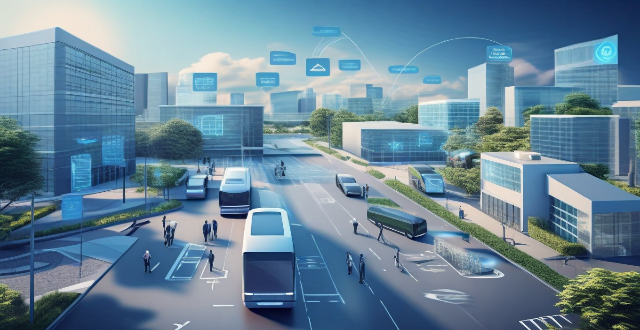The use of mobile communication technology in transportation systems has several advantages, including improved efficiency and productivity, enhanced safety and security, better customer experience, and cost savings. However, there are also disadvantages, such as privacy concerns, technical issues and downtime, high initial costs, and dependence on technology. Despite these challenges, the benefits of mobile communication technology in transportation systems can outweigh the drawbacks, leading to improved operations and services for passengers and transportation providers alike.

Advantages of Using Mobile Communication Technology in Transportation Systems
Improved Efficiency and Productivity
Mobile communication technology allows for real-time data transmission, enabling faster decision-making and improved coordination among transportation system operators. This can lead to increased efficiency and productivity in the transportation sector.
Enhanced Safety and Security
Mobile communication technology can help improve safety and security by providing immediate access to emergency services, such as ambulances or police, in case of accidents or other emergencies. Additionally, it can be used to monitor the location and status of vehicles, ensuring their safe operation on the roads.
Better Customer Experience
Mobile communication technology can enhance the customer experience by providing real-time updates on the location and estimated arrival time of public transportation vehicles. This can help passengers plan their journeys more effectively and reduce waiting times at bus stops or train stations.
Cost Savings
Mobile communication technology can help reduce operating costs by enabling more efficient use of resources, such as fuel and vehicle maintenance. By optimizing routes and reducing idle time, transportation systems can achieve cost savings while maintaining or even improving service levels.
Disadvantages of Using Mobile Communication Technology in Transportation Systems
Privacy Concerns
The use of mobile communication technology raises privacy concerns, as it may involve the collection and sharing of personal information about passengers and drivers. This can lead to potential misuse of data and violations of individual privacy rights.
Technical Issues and Downtime
Mobile communication technology relies on a stable network connection, which can be affected by technical issues or downtime. This can result in disruptions to transportation services, causing delays and inconvenience for passengers.
High Initial Costs
Implementing mobile communication technology in transportation systems often requires significant upfront investments in hardware, software, and infrastructure. These high initial costs can be a barrier for some organizations, particularly those with limited budgets.
Dependence on Technology
The reliance on mobile communication technology makes transportation systems vulnerable to cyber attacks or technical failures that could disrupt operations. Additionally, there is a risk that over-reliance on technology could lead to a decline in traditional skills and knowledge related to transportation management.